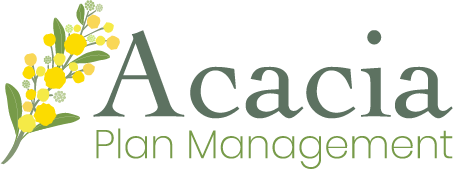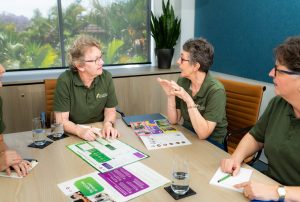Navigating the National Disability Insurance Scheme (NDIS) can sometimes feel overwhelming, especially when understanding the various supports available to you. Capacity building supports are one of the three types of supports budgets that your plan might include. The other two types of budgets are core supports and capital supports.
Capacity Building Supports are designed to empower individuals to reach their goals and enhance their independence. In this article, we explore in detail what Capacity Building Supports include and how you can utilise them to help you reach your life goals.
Understanding Capacity Building Supports
Your NDIS plan consists of various components, among which Capacity Building Supports hold a special place. These supports are carefully designed to empower you, promoting independence and unlocking fresh opportunities. Unlike Core Supports which offer fundamental assistance, Capacity Building Supports are designed to enhance your skills, boost confidence and improve your overall wellbeing.
Within your plan, the budget allocated to Capacity Building Supports is for approved individual supports within this category and cannot be shifted between different areas. This is because each category is aligned with a specific goal in your plan. These supports are meticulously categorised, addressing various facets of personal growth, including daily living skills, social connections, employment, and overall health. Tailored to assist you in achieving your goals, they pave the way for a more fulfilling life.
How Can You Spend Your Capacity Building Supports?
1. Engaging in Activities: Capacity Building Supports offer a gateway to diverse and enriching experiences. From sports coaching and camps to club memberships, art programs, and even horse riding, these activities not only enrich lives but also cultivate strong community bonds. Regardless of age, these opportunities empower individuals to pursue their passions and actively engage with the world around them.
2. Therapies for Growth: Traditional therapies like occupational therapy provide valuable life strategies. Additionally, non-traditional therapies, such as art or music therapy, acknowledging the diverse needs of individuals with disabilities. These therapies empower individuals to explore creativity and build essential life skills.
3. Assistive Technologies: Technology is vital in today’s digital age. If you require a tablet for communication, remote learning, or online health sessions, the Improved Daily Living category can fund this necessity. We guide you through the specific requirements, ensuring seamless access to essential technology.
4. Functional Capacity Assessments for Increased Funding: We know first-hand that needs do change over time. If you feel your current funding isn’t sufficient, a functional capacity assessment can be transformative for you and your family. Conducted by occupational therapists, these assessments provide evidence to the NDIA, ensuring individuals receive the necessary support. We assist you in this process, advocating for your needs.
5. Navigating Daily Life with Empowerment: Improved Daily Living funding can be utilised for practical financial guidance and assistance, helping you and your family plan your finances, understand rental agreements, or simply prepare for independent living.
6. Career Support: Securing employment is a significant milestone; the Finding & Keeping a Job funding can assist with resume writing, interview preparation, and skill development, breaking down barriers to employment. This is an excellent opportunity to develop strategies that match your abilities and aspirations, ensuring a brighter future.
7. Focusing on Health and Well-being: A healthy lifestyle is crucial for overall well-being. The Improved Health and Well-being funding can support health journeys, from personalised meal plans to working with a dietician. It can be a great way to enhance overall well-being and reach your health goals.
8. Support for Learning: Education is vital for personal growth. Although the NDIS doesn’t cover tuition fees like school or university, Improved Learning Funding can assist in the educational journey. Whether it’s occupational therapy for study skills or support to attend lectures, it could be a step toward academic success.
9. Training for Caregivers: Support extends beyond the individual. Training for parents, caregivers, and support workers equips them with essential skills, enhancing the quality of care provided. You can be connected with reputable training programs, ensuring everyone involved is well-prepared.
10. Nurturing Relationships: Human connections are invaluable, and the Improved Relationships funding can support the development of social skills, understanding social cues, and enjoying meaningful conversations. The approach emphasises the importance of relationships, promoting a sense of belonging and confidence.
How can I spend my Capacity Building funding?
You can use your Capacity Building funds to purchase any approved individual support within a specific category. You won’t be able to move Capacity Building funding between categories because each category is matched with a specific goal in your plan.
For example, if you are allocated money under the Improved Daily Living budget, you may initially decide to use 50 percent of the funding on an occupational therapist, 30 percent on a physiotherapist and 20 percent on a podiatrist.
However, down the track you may decide to assign a larger percentage to podiatry services or change from occupational therapy to speech therapy. This flexibility allows you to identify what you believe would be the best Capacity Building support to achieve your goal.
To help the NDIA decide how much money they will allocate for different categories under the Capacity Building package in your plan, keep in mind that any supports must be ‘reasonable and necessary’.
Any specialist reports you provide at your planning meeting to show you need certain therapies or supports should include as much information as possible. They should detail the types of services the specialist recommends as well as the frequency of services.
For example, if you have a recommendation from a specialist that your child needs physiotherapy, make sure their report specifies how many sessions a year they think your child needs, the duration of each session and what goals these therapies will help achieve.
If you have questions or need guidance on how to make the most of your NDIS Capacity Building Supports, don’t hesitate to contact us. We’re just a call or email away, ready to assist you from 8:30am-4:30pm, Monday to Friday. Visit our website to learn more: www.acaciapm.com.au





